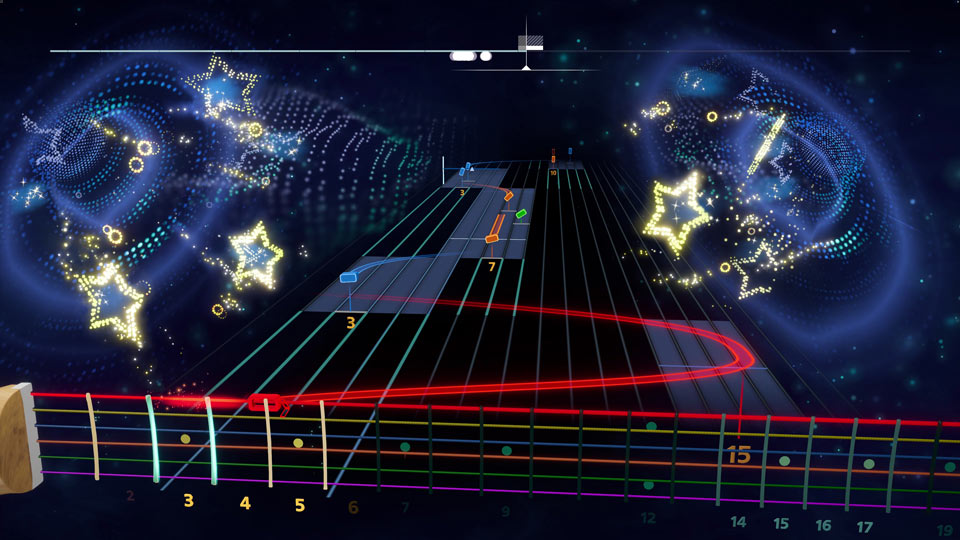Welcome to the world of alternative tunings! In this article, we'll explore Drop B tuning, a popular choice among guitarists who want to delve into heavier genres like metal and hard rock.
By learning Drop B tuning, you'll open up a new world of possibilities and give your music a fresh, powerful sound.
To help you get started, we'll explain the basics of this tuning and show you how to tune your guitar to Drop B, both with and without a tuner. Plus, we'll share some popular songs in Drop B that you can find in the Rocksmith+ library.
What Is Drop B Tuning?
Drop B tuning is a lower, heavier alternative to standard tuning, providing a rich, powerful tone that's perfect for those chunky riffs and aggressive palm-muted chugs. It's especially popular among metal and hard rock players such as Slipknot, System of a Down, and Korn to create their signature sounds.
With a guitar standard tuning including:
- E
- A
- D
- G
- B
- E
In Drop B tuning, the strings are tuned as follows:
- B
- F#
- B
- E
- G#
- C#
As you can see, the lowest string is dropped down to a B note, while the rest of the strings follow a similar pattern to Drop D tuning, maintaining the perfect fourth intervals between the strings.
How To Tune Your Guitar to Drop B
Tuning your guitar to Drop B is simple, whether you're using a tuner or not. If you have the Rocksmith Tuner app, it comes with a built-in chromatic tuner that makes it easy to dial in the correct notes for each string. Alternatively, you can use any quality tuner that allows you to choose alternative or custom tunings.
Start by tuning your low E string down to a B note. This is a significant drop, so make sure to tune it gradually and carefully to avoid any string breakage.
Next, tune your A string down to an F# note. You can use the 4th fret of the previously tuned low B string as a reference point.
Tune your D string down to a B note.
Keep your G string as is, but tune your B string up slightly to a C# note. Be cautious when tuning up, as it can increase tension and risk breaking the string.
Finally, tune your high E string down to a G# note.
Once you've tuned all your strings to Drop B, you're ready to explore the world of heavy riffs and powerful chords! With Rocksmith+, you'll have access to a library of over 6,000 songs, including many that utilize Drop B tuning for you to learn and enjoy.
What Are Some Tips and Techniques for Playing in Drop B?
![[RS+] What Are Some Tips and Techniques for Playing in Drop B](http://staticctf.ubisoft.com/J3yJr34U2pZ2Ieem48Dwy9uqj5PNUQTn/6aYs3LhC0Z7lCqrek3TwTs/71f0e935220087651edf5046a68dc59b/AdobeStock_34638742.jpeg)
Now that your guitar is tuned to Drop B, it's essential to familiarize yourself with some of the techniques that work best with this tuning.
Here are a few tips to help you get started:
-
Embrace power chords: In Drop B tuning, power chords are easy to play. Place your finger flat across the bottom three strings at any fret while avoiding the top three, and you've got yourself a powerful, heavy-sounding chord. This simplicity allows you to focus on your picking hand's rhythm and intensity, which is crucial for heavy music styles.
-
Experiment with octave shapes: Drop B tuning opens up a world of interesting octave shapes, allowing you to create fuller, more expansive chords. Try playing a power chord and adding an octave on the higher strings to create a more complex, layered sound.
-
Develop your palm-muting technique: Drop B tuning is well-suited for aggressive palm-muted riffs. Work on your palm-muting technique with your picking hand to create tight, chuggy riffs that'll make your guitar sound huge. Remember, the key is to use the side of your palm to gently dampen the strings near the bridge without fully stopping the vibrations.
-
Explore alternate picking: To make the most of the fast, aggressive riffs that Drop B tuning lends itself to, practice your alternate picking technique. This involves alternating between downstrokes and upstrokes with your picking hand, allowing you to play faster and more efficiently.
-
Use slides and bends: Drop B tuning offers many opportunities for expressive playing using slides and bends. Experiment with sliding between power chords or adding bends to your single-note riffs to inject some extra flavor into your playing.
What Drop B Songs Can I Play With Rocksmith?
Rocksmith+ includes more than 7,000 songs from different artists, genres, and styles found around the world.
Diving into Drop B, you will get the chance to play songs such as:
-
Bradley by Coal Chamber - Straight from 1997, this hard rock hit showcases how Drop B simplifies complex chords such as B5, C#8, D#8, and many more.
-
Colors of the Heart by UVERworld - This 2006 Japanese hit will test your skills with a range of chords, mutes, hammer-ons, pinch harmonics, slides, triads, and much more.
-
Feel Good by Hed Planet Earth - Also known as HedPE, this 2000 hit is an alternative rock lyrical masterpiece with a slower tempo, great for learning those new chord shapes.
-
Howling -Inch Up- by Abingdon Boys School - This Japanese alternative metal band remains a hit for anime and rock fans alike with their upbeat, high-energy music.
With these songs and many more, Rocksmith+ is a great resource for exploring new genres and artists to further your playing. Available songs may vary by region.
Should I Learn To Play in Drop B?
The simple answer is yes, absolutely.
Exploring alternate tunings will continue to push you into new styles and genres as a musician. While alternative tuning remains an obstacle for many players, those who have taken the steps to learn and step outside of standard tuning have found it to be a major advantage in advancing their musical talents.
Rocksmith+ is an invaluable resource for learning and practicing songs in Drop B tuning, with over 7,000 songs in its library. Dive in and explore the rich, heavy sound that Drop B has to offer, and take your guitar playing to new heights. Remember, Rocksmith+ is here to support you on your musical journey, providing an accessible and genuine learning experience for guitarists of all skill levels.
Sources:
Perfect Fourth | Music Theory Academy
Alternative Tunings | Guitar World
What Is An Octave In Music? A Complete Guide | Hello Music Theory









